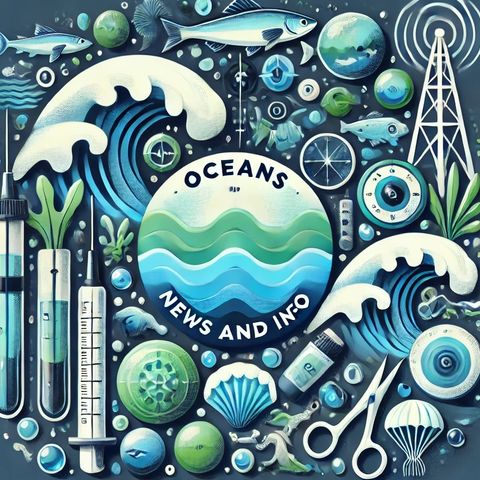Coral Reef Veterinarians: Safeguarding Coastal Communities from Hurricane Havoc

Descarga y escucha en cualquier lugar
Descarga tus episodios favoritos y disfrútalos, ¡dondequiera que estés! Regístrate o inicia sesión ahora para acceder a la escucha sin conexión.
Coral Reef Veterinarians: Safeguarding Coastal Communities from Hurricane Havoc
Esta transcripción es generada automáticamente. Ten en cuenta que no se garantiza una precisión absoluta.
Descripción
To protect coastal communities from hurricanes, call the... coral reef veterinarian? Stony coral tissue loss disease (SCTLD) is wreaking havoc on coral reefs, and its impacts extend far beyond the...
mostra másStony coral tissue loss disease (SCTLD) is wreaking havoc on coral reefs, and its impacts extend far beyond the underwater environment. USGS biologists, peering through microscopes at tiny polyps and algal cells, are uncovering critical information about this damaging condition. Coral reefs serve as natural barriers against the forces of hurricanes, dissipating wave energy and minimizing coastal erosion. However, the survival of these reefs is increasingly threatened by SCTLD, which can destroy significant portions of coral populations with surprising speed.
Understanding SCTLD requires a deep dive—literally and figuratively—into the lives of the coral polyps. These tiny creatures form the backbone of coral reefs, creating intricate structures that support diverse marine ecosystems. When SCTLD strikes, it primarily targets stony corals, gnawing away at their tissues and leaving a trail of destruction that can quickly magnify. Once vibrant and healthy sections of reefs can turn into barren wastelands in mere months.
USGS biologists are focusing on microscopic-level research to identify the disease's characteristics, transmission patterns, and potential treatments. By analyzing polyps and algal cells under the microscope, scientists aim to uncover how SCTLD spreads and impacts the reef ecosystem. This microscopic examination is crucial, but it must be paired with broader, ecosystem-level strategies to fully understand and combat the disease.
The stakes are high. Coral reefs provide immense ecological benefits, supporting fisheries, protecting shorelines, and fostering biodiversity. Without effective intervention, SCTLD could strip coastal communities of these valuable natural resources, leaving them vulnerable to the full brunt of hurricanes and tropical storms. As climate change continues to exacerbate weather patterns, the need to maintain healthy coral reefs becomes ever more urgent.
Efforts to mitigate SCTLD and protect coral reefs involve a variety of approaches, including the introduction of probiotics to diseased reefs, laboratory cultivation of disease-resistant coral species, and stringent monitoring of reef health. Biologists and marine veterinarians are working together, applying their collective expertise to address this complex problem. By preserving coral health, we safeguard our coastal communities, making "coral reef veterinarians" essential players in the fight against the destructive forces of nature.
Through these combined efforts, USGS biologists and marine scientists are not just peering into microscopes—they're looking into the future, seeking to ensure that coral reefs continue to play their critical role in protecting coasts and supporting marine life. Their work underscores the interconnectedness of natural systems and human well-being, demonstrating that microscopic studies can have macroscopic implications.
Información
| Autor | QP-4 |
| Organización | William Corbin |
| Página web | - |
| Etiquetas |
Copyright 2024 - Spreaker Inc. an iHeartMedia Company
